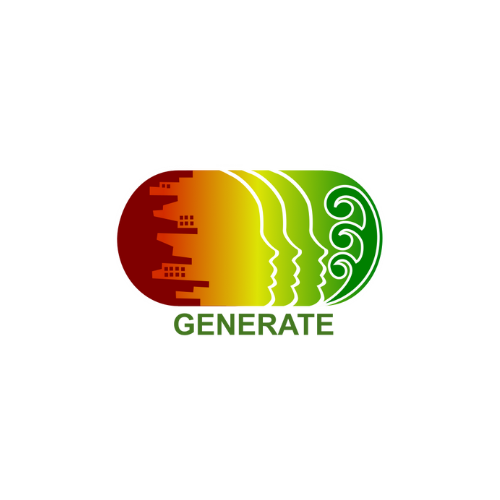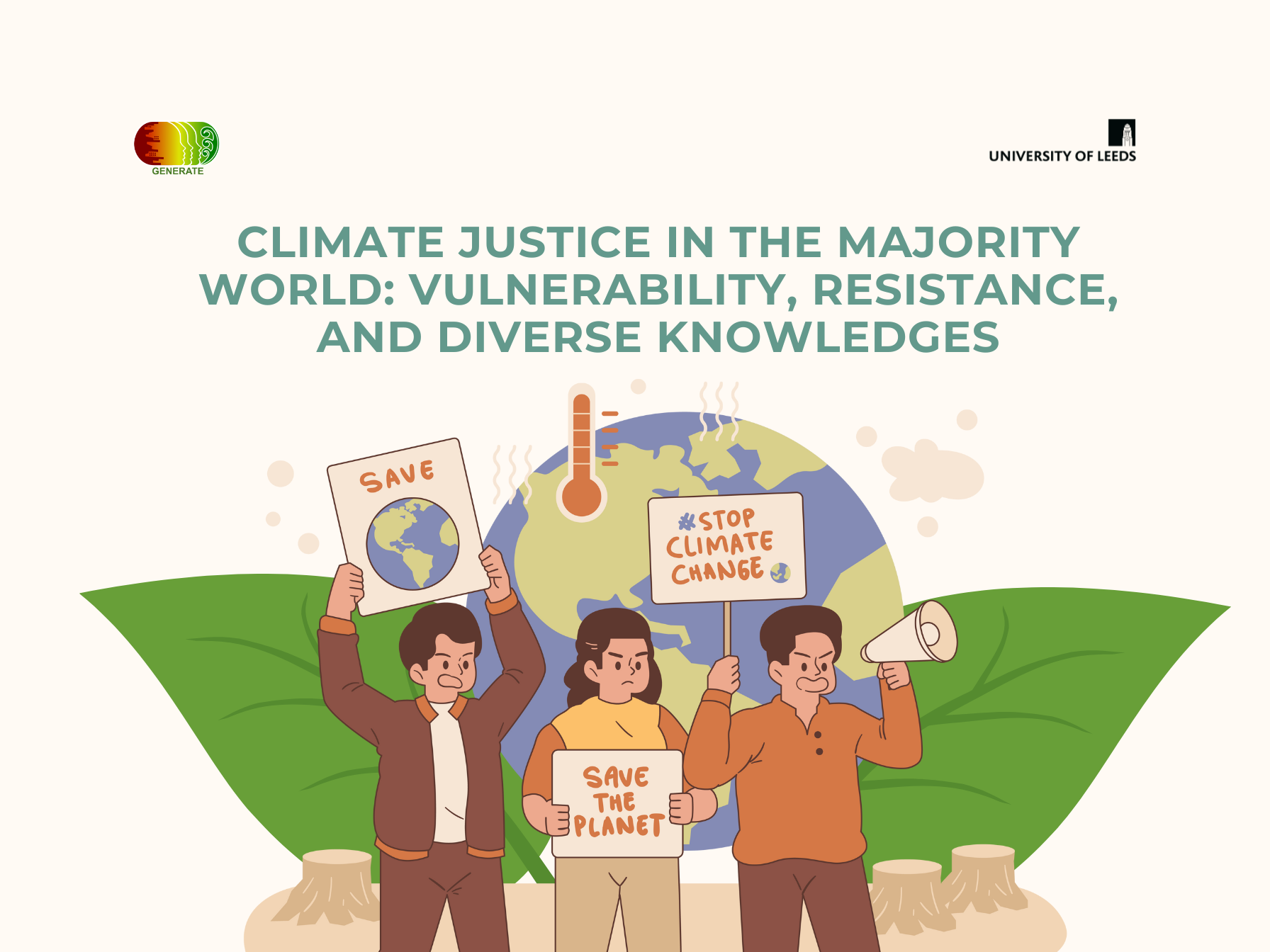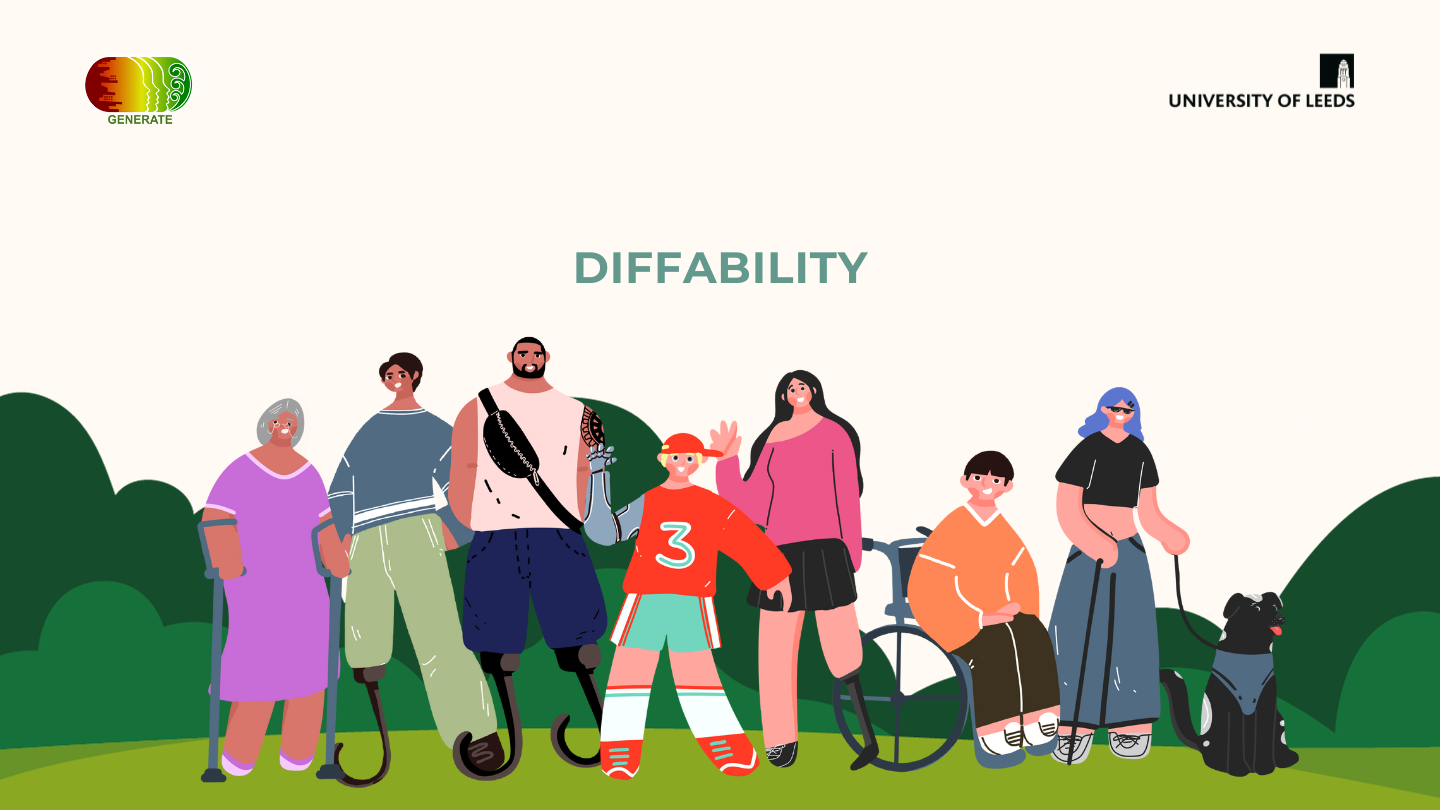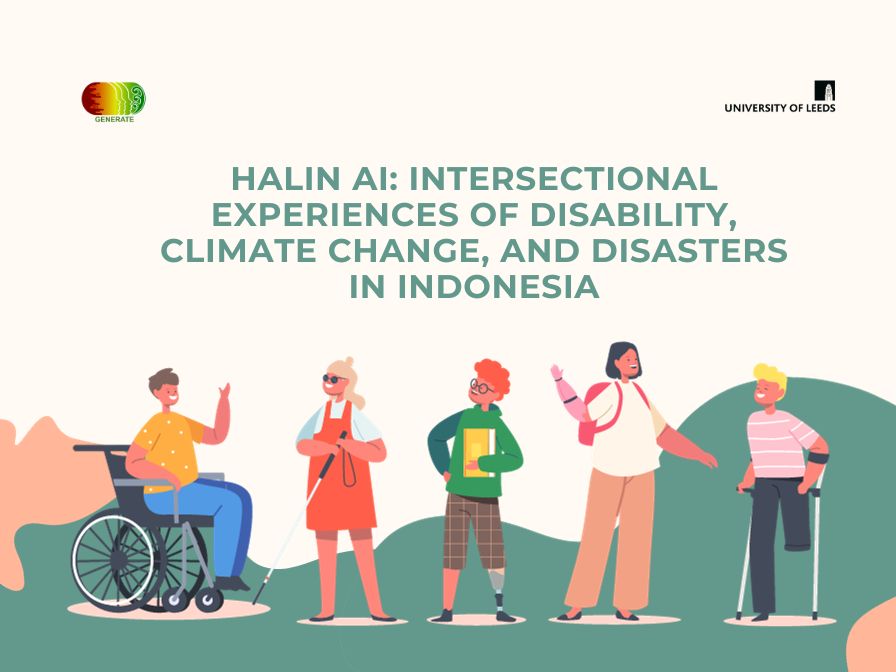
Halin ai centres the lived experiences of climate change and disasters of people living with disabilities in two urban sites in Indonesia—Banjarmasin in South Kalimantan and Mataram in West Nusa Tenggara.
We call for an intersectional and decolonial approach to better understand how disabilities intersect with social and structural injustices in urban settings to shape diverse responses to climate change and disasters. We highlight the economic, socio‐cultural, and embodied challenges that increase vulnerability to—and ability to recover from—disasters including urban flooding and earthquakes.
We draw on ethnographic and visual data from our research, including a comic illustrated by Ariel and Zaldi and sketches by Rizaldi, to centre diverse lived experiences of structural vulnerabilities and socio‐cultural marginalisation, particularly concerning education and livelihoods. Foregrounding life stories in this way serves to challenge the absence of meaningful engagement of people with disabilities in disaster risk reduction and climate change actions and decision‐making.
Our article highlights disability as a site of both discrimination and critical embodied knowledge, simultaneously a product of structural, socio‐cultural, political, and environmental injustice while also a source of innovation, resilience, and agency.
Indonesia is situated in the “ring of fire,” prone to hazards and disasters including volcanic eruptions, landslides, earthquakes, tidal waves and abrasion, and flooding. According to Indonesia’s National Disaster Mitigation Agency, in 2022 there were a reported 3,542 disasters, displacing over 5.3 million people and killing over 850 (Aditya, 2023).
Within the first three months of 2023, the country recorded 564 disasters, of which more than 40% were floods, followed by extreme weather, landslides, forest fires, and earthquakes (Annur, 2023). A disaster, Rydstrom and Kinnvall (2020, p. 2) remind us, “unfolds societal dynamics at the structural level and a community’s relation to its environment,” which further shapes their “capability to adapt and the extent to which local knowledge can be infused to reduce vulnerability and harm.”
It is therefore critical we address the disproportionate and unequal impacts of disasters on people as a result of geographic, structural, and social marginalisation including poverty, gender, age, colonialism, race, ethnicity, disability, and indigeneity (see Wisner et al., 2012), and the extent to which this further excludes their experiential knowledge from decision‐making. To do so here, we centre the perspectives of people with disabilities.
DOWNLOAD PUBLICATION [HERE]



